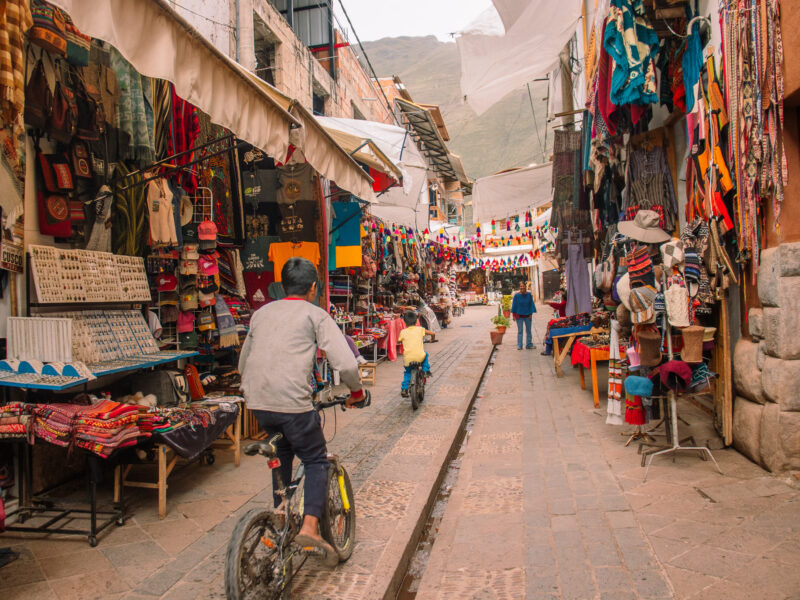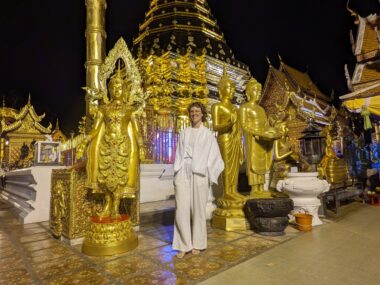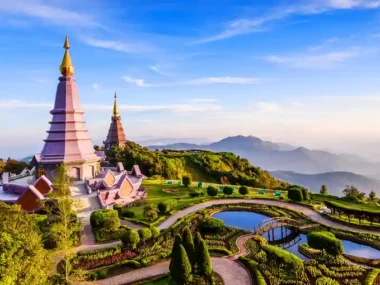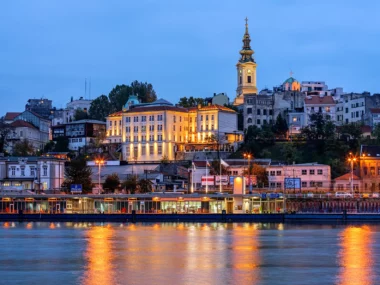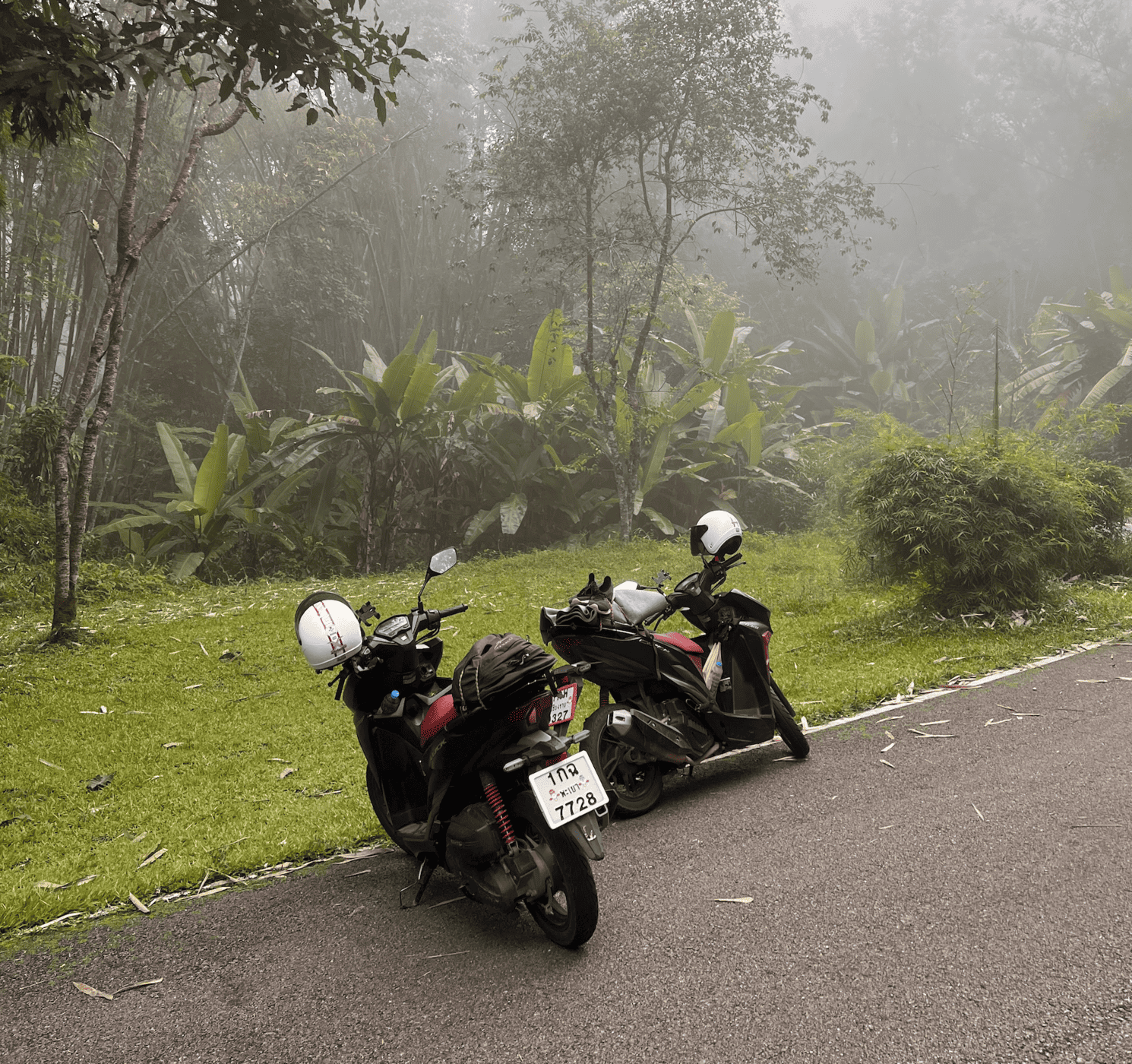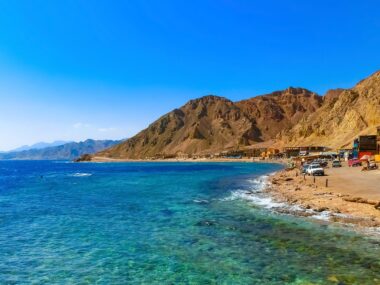Table of Contents
As digital nomads from around the world settle into places like Cusco for their own adventures, I can’t help but wonder how the magic I experienced as a child has changed — and what responsibility travelers like us have in preserving it.
Growing up, my family and I lived in Cusco, Peru. I remember that many Saturdays my dad would take us to towns in the Sacred Valley, a region of beautiful landscapes, inca terraces and deep-rooted traditions spread along the Vilcanota River. On weekends, he’d drive us to go out camping, fishing or trekking. It was magical to experience all of this as a child at the foothills of the Andes mountains.
One of these towns was Pisac, just about 40 minutes from Cusco. Sometimes we’d visit the surroundings and then grab one of their famous empanadas from the oldest oven in town. My mom loved to explore the local market and buy something new to eat for the week, so that was another stop for sure. In high school, some weekends my friends and I would go to this incredible place to explore and play football all day long.
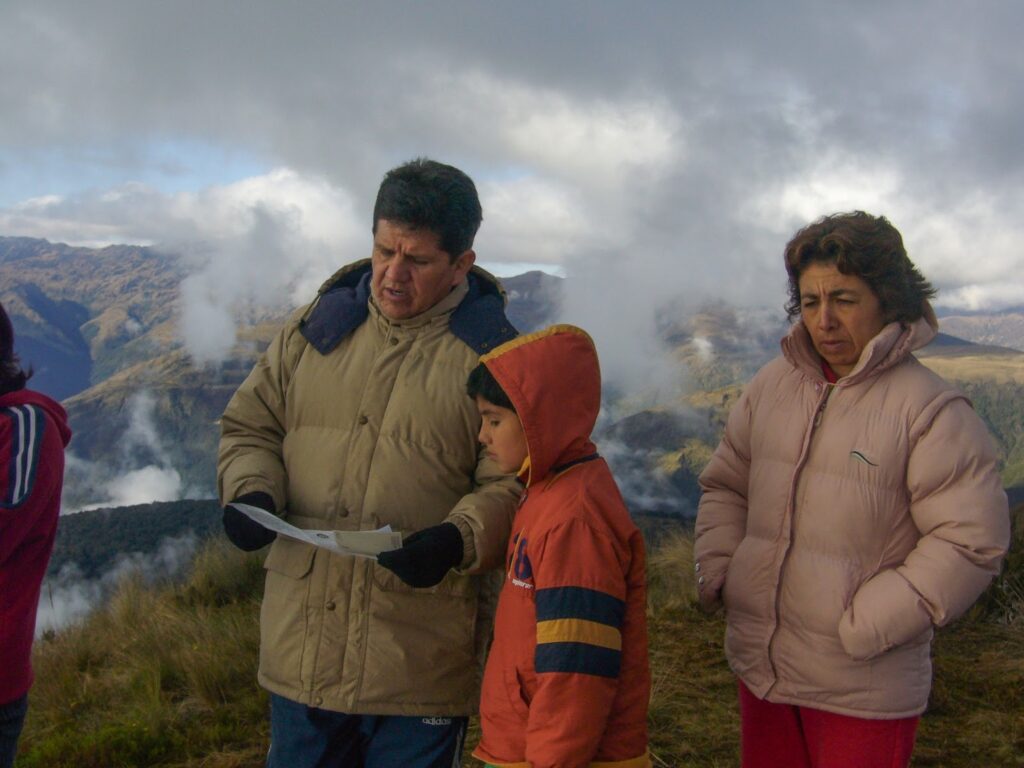

Years later, I returned to Pisac and I realized something. The place had changed. Not just physically, but culturally. I could see it, and feel it. There were some things that seemed different to me than the small town I used to know. Many advertisements of ancestral spiritual ceremonies in English, new gluten free and vegan cafés with high prices, and yes, more travelers and remote workers from foreign countries.
Since I also travel a lot, many friends have asked me about life in Pisac and the Sacred Valley these last years, so I was curious to see if it was true that more people were coming here to stay long term. Having been a digital nomad, I confess I felt a little guilty, so I couldn’t help but ask myself: Will Pisac increase its prices? Was I part of it? What do the locals think about this? Will the same thing that’s going on in places like Bali, Mexico City or Medellin happen here in the Sacred Valley? How can we, as digital nomads, have a positive impact on local communities?
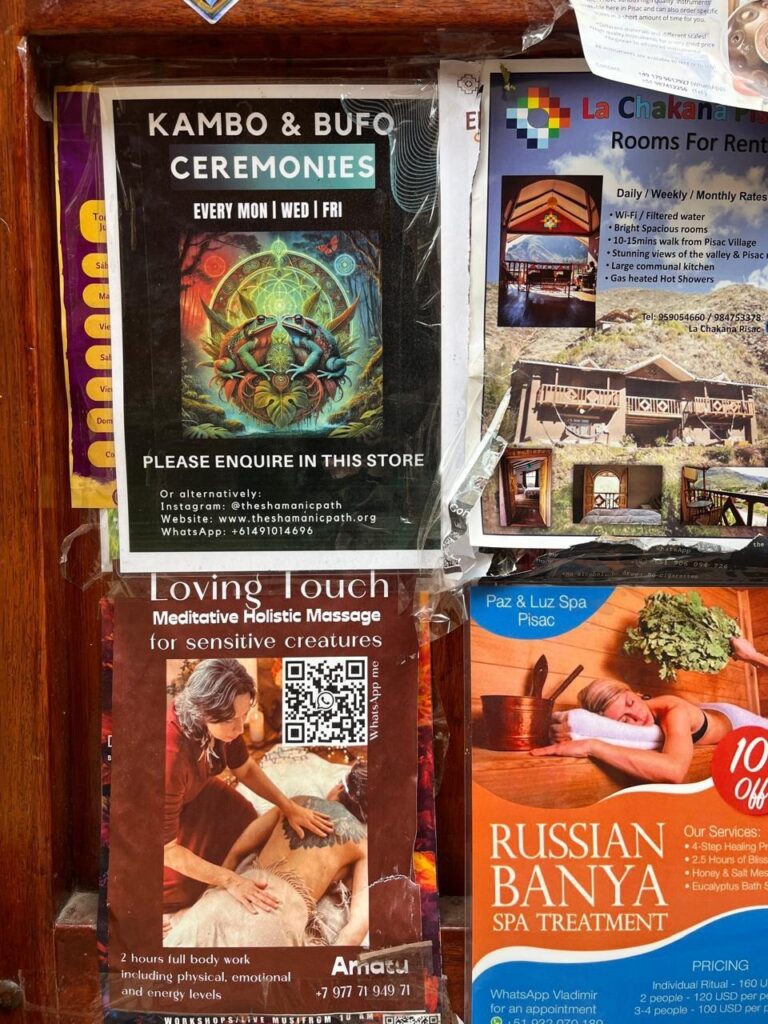
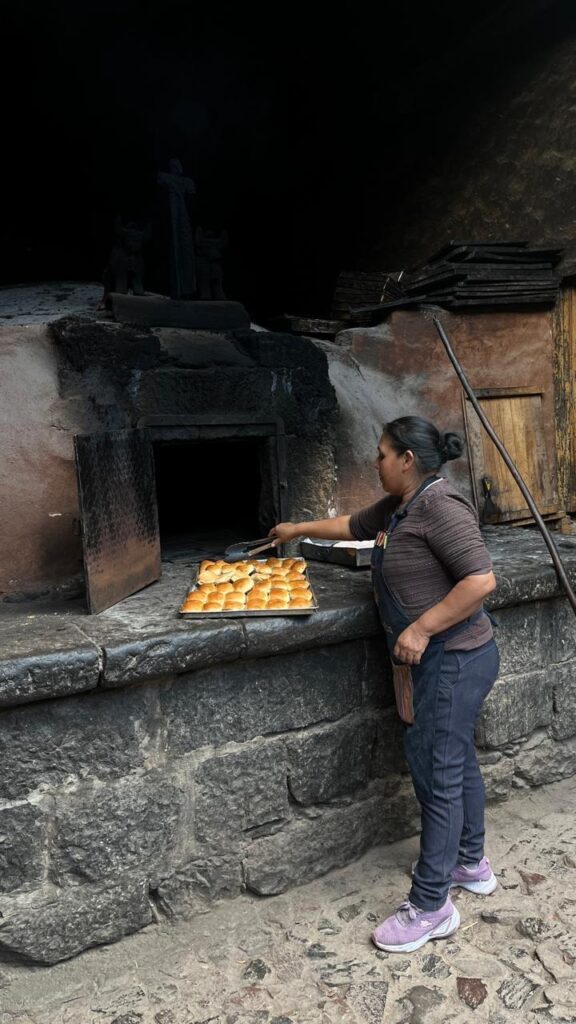
Traveling responsibly is a mindset we build together. I’ve been gathering thoughts and lessons from fellow travelers who care about community and culture — you can find them here.
What is Gentrification and Why it matters
Gentrification occurs when people with higher income move into a lower-income area. At first, this may look as a good thing, bringing new businesses, more money and better infrastructure; but over time, and especially if more and more people continue arriving , this can affect the economy, pushing local families out of their houses and changing the culture, making it less authentic.
We need to understand that a balance is necessary if we want to travel and live abroad responsibly, giving back to those communities and places that we love so much. Finding that balance starts with awareness, understanding how our actions impact the places we choose to call home, even if just for some months.
So how can we, as digital nomads, be part of the solution rather than the problem?
Get Involved in the Community
Some places, and especially small towns, have a strong sense of community. It’s important to smile at your neighbors, know who they are, what their life is like, if there is a birthday or town celebration coming soon, etc. When issues come up, locals often hold community meetings to find collective solutions. By being part of those conversations and showing genuine care, you’ll be welcomed not just as a visitor, but as a neighbor.
Learn the Language (or at least some of it)
Language is connection. While traveling, one of the best feelings in the world is to see how a person gets excited when you speak in his/her mother tongue. Even a few words can open doors and change perspectives.
Take time to learn local expressions, slangs, traditions, and the context behind them. Language reveals how people see the world, and gets you into a full immersive experience into their culture (also you will learn the local sense of humor, my favorite part).
Support Local Businesses
Buying directly from locals can have a huge impact on avoiding gentrification. Sure, the new cafeteria may look perfect for our instagram story and is gluten free, but it won’t make any difference to the owner who probably is not even there to smile and thank you, unlike the local from the other place whose family has run the place for generations.
Also, who needs imported brands or international chains when you have handmade crafts, fresh produce that grows just a few miles away and your money going directly to support a family?
Choose Local Owned Accommodation
Where you stay matters. Opt for family-run guesthouses, small hostels, or homestays owned by locals rather than big hotel chains or absentee landlords. These places often have the best local insights and tips, homemade breakfasts, and real connections with the community. Your stay can help a local family make a living, and in return, you’ll experience a home more than a house.
Ask Locals What They Think
Once I ran into a meme that said: Having a conversation with an expert in politics < having a conversation with the uber driver in the country you just arrived in.
People who have been longer at the place know best of the current social issues. Chat with your neighbors, people in the market or the driver taking you to town. Ask how things have changed over the years, what they love most about their community, or what challenges they’re facing. You’ll learn way more from those conversations than from any guidebook, and locals will appreciate that you actually care.
Share Opportunities
If you are a digital nomad it’s more than likely that you have a skill that allows you to work remotely. And there is nothing like sharing your passion with others and helping them in their journey, am I right? Whether it’s business, photography, computer science, marketing, design, or just good communication, don’t forget to share it.
Many locals are eager to learn how to grow their own projects online or attract more visitors to their businesses. Offer a free workshop, collaborate on a campaign, or simply exchange knowledge over a coffee. When you help others build their own opportunities, travel becomes more than a personal journey, it becomes a life purpose.
Final Thoughts
We, as digital nomads, are lucky to live in a time where we can work from anywhere, from beach towns in the Caribbean to mountain villages in southeast Asia. But our freedom comes with responsibility. Every place we visit gives us something. It fuels our creativity with stories, perspectives and new ways of seeing life.
The least we can do is give something back. As Uncle Ben said and has been quoted millions of times: “With great power comes great responsibility.” Let’s use that power to uplift the communities that welcome us. Doing so leads to unforgettable connections, leaves a positive mark on people’s lives, and turns our travels into something far greater than just movement, it turns them into part of the solution.
If you enjoyed reading this, check out these articles:
What does gentrification look like in popular digital nomad destinations?
In many nomad hubs, rising rent prices and the growth of short-term rentals push out local residents. Understanding these local dynamics helps travelers make more responsible choices.
How can digital nomads avoid fueling it?
Support local businesses, rent from locals, learn the language, and engage with the community instead of isolating within expat circles.
What are practical ways digital nomads can reduce their impact?
Staying in locally owned housing, supporting community businesses, and learning some of the local language all help balance your presence as a visitor.
How can learning the language make a difference?
Even learning basic phrases helps build trust and respect with locals, showing that you care about their culture rather than just using the location as a backdrop for work.
What’s one easy way nomads can give back?
Participate in local initiatives or volunteer programs that directly support the community instead of international organizations.

